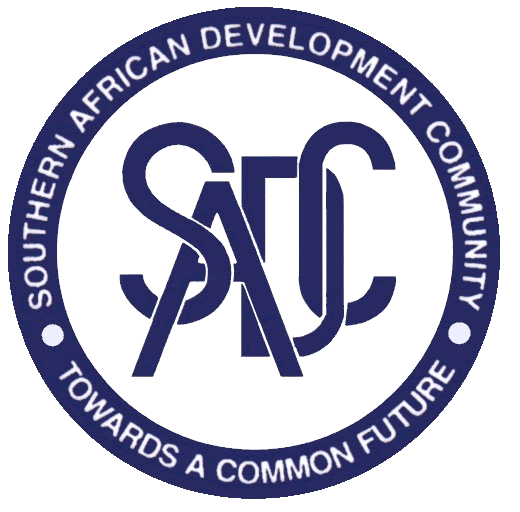
The Sunday Mail

Teddie Bepete
The 37th Sadc Summit in Tshwane earlier this month under the theme, “Partnering with the private sector in developing industry and regional value-chains”, was convened on the backdrop of Zimbabwe’s success in one of the bloc’s sectors of serious concern -food security.
Fruition of Command Agriculture — a partnership between Government and Sakunda Holdings — confirms that private sector involvement in national programmes is unavoidable and valuable.
Sadc aims to foster development through indigenous resources in order to enhance self-sustenance rather than rely on punitive foreign capital institutions that diminish regional competitiveness and growth. Though our country still has a long journey to travel in revitalising the economy’s industrial complex, food security is the mortar out of which civilisations were built.
Our builders, engineers and artisans cannot work productively on empty bellies. Poor food supply is the sword of Damocles hanging over every nascent economy’s sustainability. It’s good that Southern African leaders are seeing things through Zimbabwe’s lenses.
The Zimbabwean dream has always been a reflection of the broader African dream. Functional regional economic blocs can be an effective way of undermining stagnation in the Third World, including Sadc.
Our regional entities share a common colonial past, a historical scar which renders them an equal identity; therefore, making it easy to have a mutual working relationship.
Most of these countries jointly fought liberation wars against colonisers. This bitter past — apart from proving the brutality and audacity of the capitalist-fed imperial machinery — also proved that the African dream can only be achieved if African entities work together.
Our ancestors were in the know when they said, ‘‘Wisdom is like a baobab tree. No one individual can embrace it.’’ The Sadc Summit was held under a broader spectrum of bringing member states together to create a common economic sphere. Summit agreed that Southern Africa has to mobilise its own resources and fund its own projects. No doubt, President Mugabe’s gift to the African Union was an encouraging gesture.
President Mugabe has always championed indigenisation, and some African countries have taken heed of the pundit’s counsel, itself a reminder of the founding values of the African dream.
A dream that can only be realised by united Africans. Zimbabwe’s economic turnaround is anchored on indigenisation, empowerment and ownership of resources. No economy can be sustainable without ownership of its resources and empowerment of its citizens.
Only the spirit of Pan-Africanism will give Sadc a shared vision of the future. A spirit of African brotherhood as cascaded by great Tanzanian revolutionary Mwalimu Julius Nyerere who said: “For centuries, we had been oppressed as Africans. We were hunted and enslaved as Africans, and we were colonised as Africans . . . Since we were humiliated as Africans, we had to be liberated as Africans.”
We got united as a region and fought for political freedom, and won. Now is the time to stand together, and fight for economic surplus. Sadc’s policies such as the Regional Industrialisation Strategy and Roadmap; and the Regional Agricultural Policy should markedly begin to address this concern.
Incidentally, Zimbabwe happens to already have addressed the requirements of the latter policy as the region was sitting to discuss ways that can enhance productivity.
Farmers are said to have begun registering for the coming agro-season. Yesteryear’s errors must be ironed out as we consolidate the country’s breadbasket; not breadline status as anticipated by flummoxed regime change agents.
Sadc’s industrial mobilisation strategy, if seriously pursued, will be a blessing to our SMEs for they will be given room for interaction, exposure and competition.
The public has, however, been urging member states to establish a regional currency to instil confidence and viability in regional business.
Sadc Chair President Jacob Zuma described the discovery of gas in several regional countries as a game-changer, emphasising that Africa should benefit more.
This is the stance Zimbabwe has taken on resources. And it is the only way that can give the region a vestibule towards economic freedom.
Of paramount importance is that the sub-continent is aspiring to fund its programmes through Public-Private Partnerships and not through foreign aid.
Foreign aid’s strings-attached approach has always been painful.
Egyptian luminary Gamal Abdel Nasser once expressed his dislike for foreign aid, saying: ‘’We are a sentimental people. We like a few kind words better than millions of dollars given in a humiliating way.’’
The Zimbabwean way is now being understood by many, a way — if well pursued — will lead us to economic paradise.
An African paradise, which was the goal of Africa’s liberation struggle.
Countries physically showed their solidarity with Zimbabwe in their uproarious welcome to President Mugabe at the Summit.
However, this hope should in the end not be seen as delusional.
Member states need not be cynical actors, but religious drivers of this obligation. Value can only be realised by whole-hearted pro-action by member states.
The age of sloganeering should end. Sadc has to painstakingly traverse a long way in ensuring the promise of modernity is borne out of the twilight of receding neo-liberalism.
It will take a long and steadfast journey before this aspiration materialises.
A journey to be pronounced by actions not mere thoughts, as espoused by Kwame Nkrumah in these wise words: ‘‘Revolutions are brought about by men, by men who think as men of action and act as men of thought.’’



